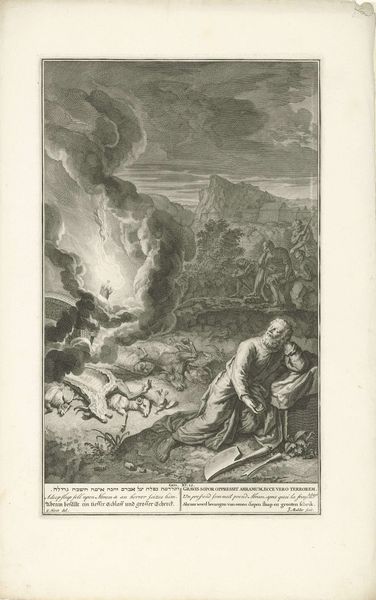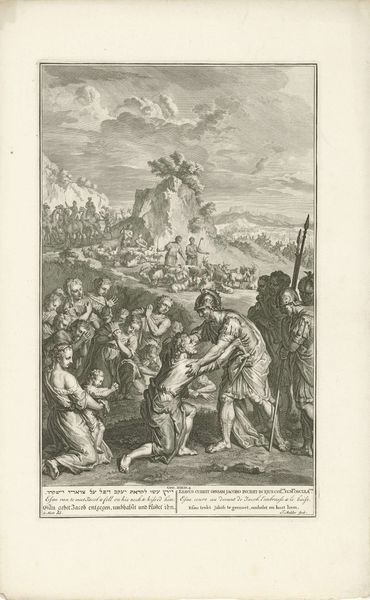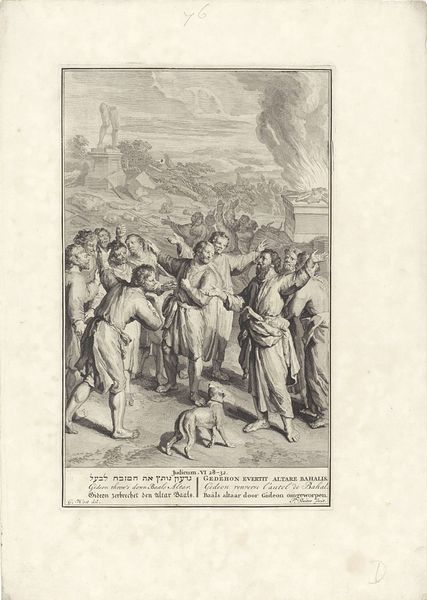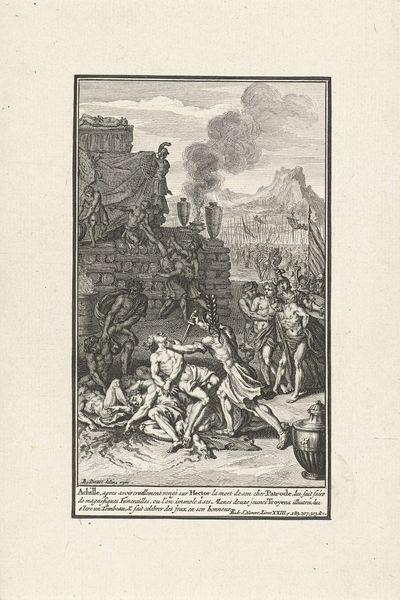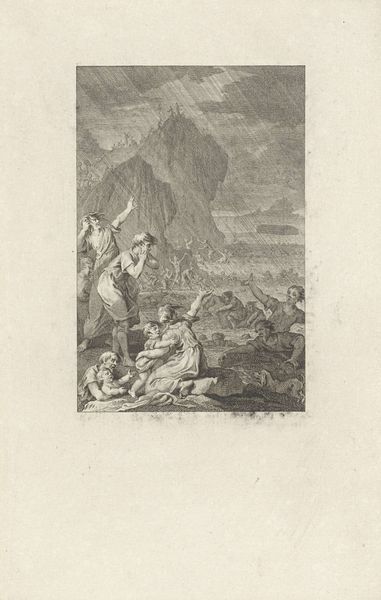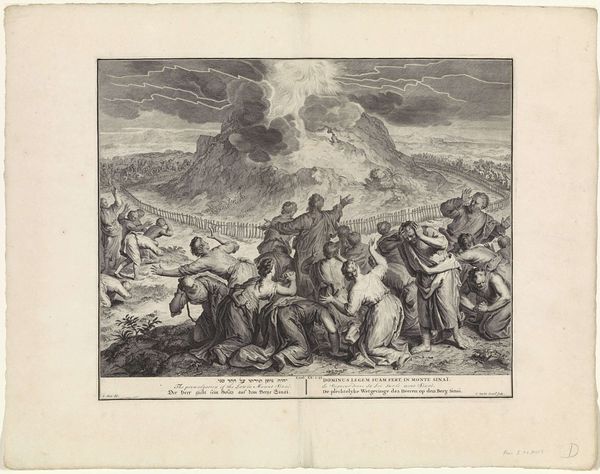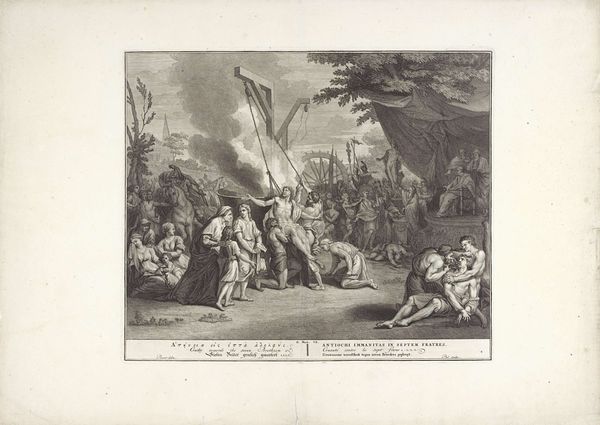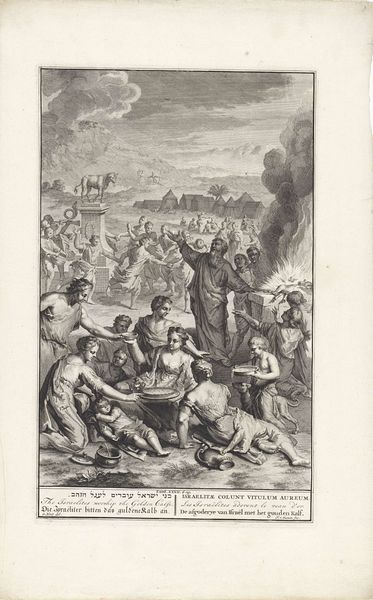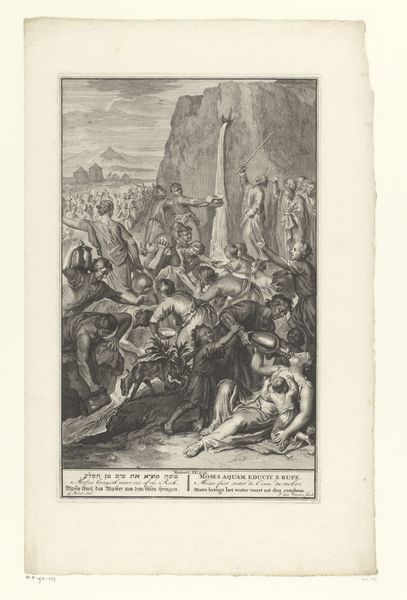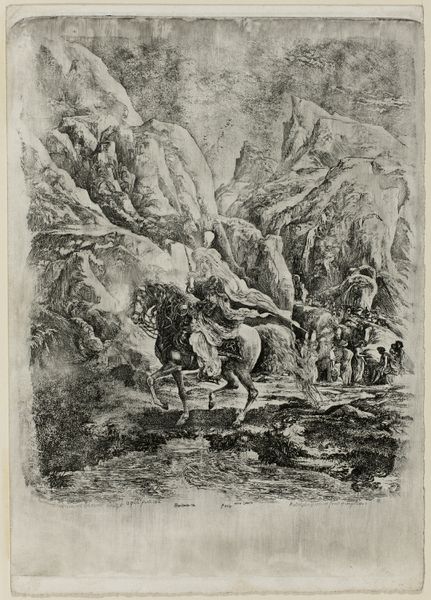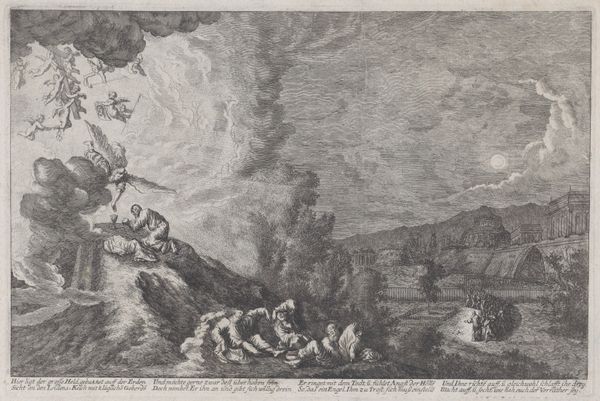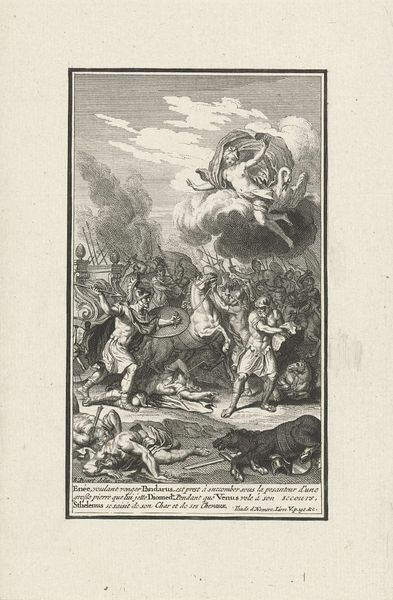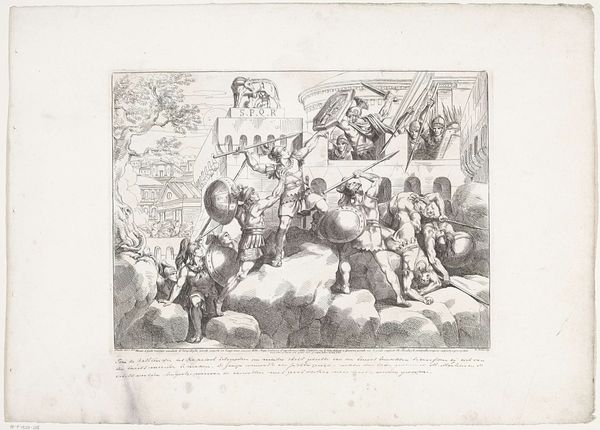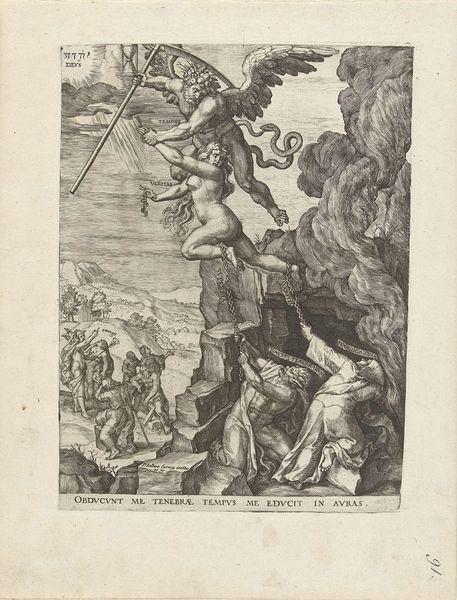
print, engraving
#
baroque
# print
#
old engraving style
#
landscape
#
figuration
#
history-painting
#
engraving
Dimensions: height 353 mm, width 227 mm
Copyright: Rijks Museum: Open Domain
This print, "Noach's Offer," was made by Jan van Vianen in the late 17th or early 18th century, using etching and engraving techniques. The image is not drawn, but rather, incised. Look closely, and you’ll see the qualities inherent in this type of printmaking. Van Vianen would have employed a metal plate, likely copper, carving lines directly into its surface or biting them with acid. The density of these lines creates tone, building up the image from dark to light. The stark contrast emphasizes the drama of the scene: Noah giving thanks after the flood, offering sacrifices amidst billowing smoke. Consider the labor involved. Each line represents a deliberate action, a commitment to the composition. This meticulous process stands in contrast to the immediacy of painting or drawing, reflecting a different kind of artistic intention. Printmaking like this made images accessible, circulating stories and ideas widely. Van Vianen’s print bridges the realms of craft and fine art, reminding us that meaning is embedded not only in the subject, but also in the making.
Comments
No comments
Be the first to comment and join the conversation on the ultimate creative platform.
